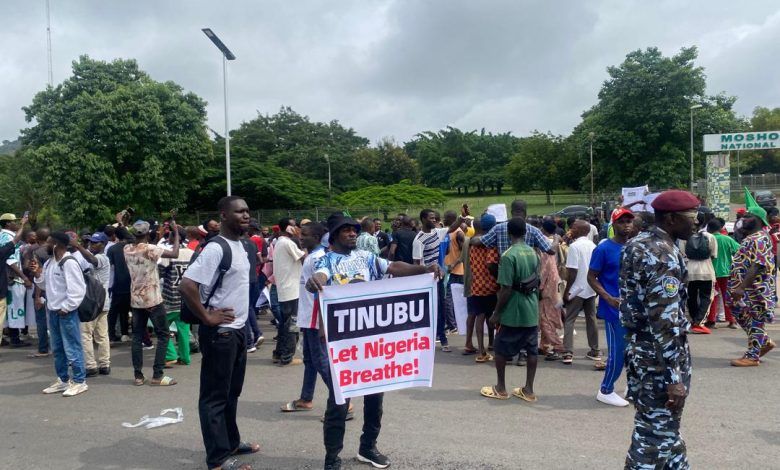Resilience, Tear Gas, Looting, Curfew as #EndBadGovernance Protests Hold

Tension was palpable in parts of Nigeria on Thursday as the much-touted #EndBadGovernance protests finally took place in almost all the 36 states of the Federation and the Federal Capital Territory (FCT), Abuja.
In a bid to curb the looting, violence and other after-effects of the protests, the Kano, Borno, Yobe, Katsina and Nasarawa state governments imposed curfews in volatile local government areas (LGAs) in their states.
While Kano and Borno state governments imposed 24-hour state-wide curfews, Yobe restricted movement in three LGAs, and Nasarawa imposed movement in one charged LGA. On its part, the Katsina government imposed a 24-hour curfew in Dutsin-Ma LGA and 12-hour curfew in the remaining 33 LGAs.
Propagated on social media, the nationwide protests against economic hardship started on Thursday, August 1, 2024, and have been scheduled to stretch till August 10 across all states of the Federation as well as the nation’s capital Abuja.
Prices of food and basic commodities have gone through the roof in the last months, as Nigerians battle one of the country’s worst inflation rates and economic crises sparked by the government’s twin policies of petrol subsidy removal and unification of forex windows.
The police, military and the Department of State Services had warned against Kenya-styled protests. Politicians, who surmised that the planned rallies might end up like the EndSARS demonstrations of October 2020, have continued to appeal to youths to shelve the rallies but the young people have been unfazed.
Defiant, they filed out on Thursday morning in different states across the Federation. First in trickles, then they regrouped themselves, enlarged their tents and soldiered on chanting solidarity songs with placards and banners that had different inscriptions conspicuously emblazoned on them.
From Port Harcourt to Potiskum. From Eagle Square to MKO Abiola Park. From the iconic Lekki Tollgate to the eponymous Gani Fawehinmi Park symbolic of civil protests. They poured out. From the southern and northern regions of the country. Young and old. Male and female. Religious differences and ethnic affinities temporarily set aside. They braved the odds and tabled their demands.
Some of the demands of the protesters include the restoration of petrol subsidies and the forex regime. They also want the government to address food shortages, unemployment and wasteful spending by those in power. Other demands are immediate reforms of the electoral umpire INEC and anti-graft agency EFCC with renewed vigour in the fight against corrupt politicians.





